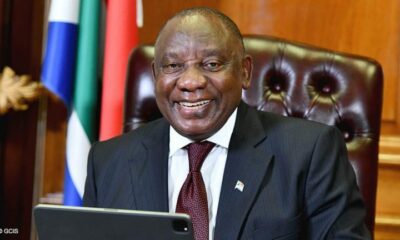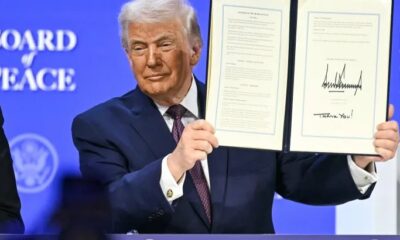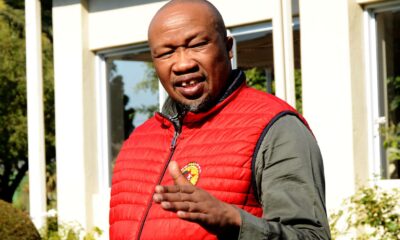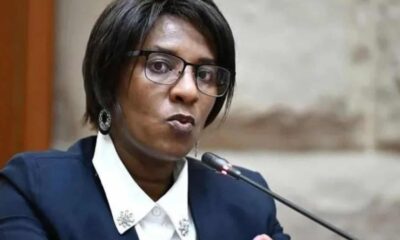News
BRICS Leaders Condemn US Tariff ‘Blackmail’ as Ramaphosa Highlights Global Trade Risks
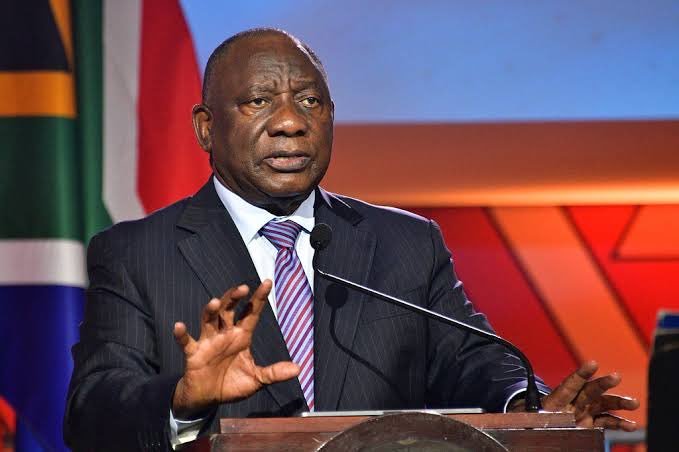
Emerging Economies Push Back Against Protectionism
In a virtual gathering of the 11-member BRICS bloc, leaders of emerging economies voiced sharp criticism of the United States’ trade tactics, with South Africa’s President Cyril Ramaphosa warning that unilateral tariffs are creating severe hardships for the Global South.
The meeting, initiated by Brazil’s President Luiz Inácio Lula da Silva, came amid growing international concerns over “unilateral measures” and the normalization of what Lula called tariff blackmail.
“Tariff blackmail is being normalised as an instrument to conquer markets and interfere in domestic affairs,” Lula said, highlighting the economic and political pressures imposed on Brazil.
The South African Context
South Africa has been hit with a 30% US tariff, the highest in sub-Saharan Africa, targeting the country’s exports. Ramaphosa said these measures have already disrupted employment and economic growth, stressing that they amplify the vulnerabilities of countries in the Global South.
“The world is witnessing seismic shifts in global trade that present both challenges and opportunities in the re-ordering of the global economy,” Ramaphosa said. “There is a shift from a unipolar to a multipolar world, marked by intensifying global competition and growing geopolitical tensions. Unilateral tariff actions are contributing to an increasingly protectionist environment.”
Social media users in South Africa expressed frustration at the tariffs, noting that local businesses are already feeling the pinch. One Twitter user commented: “US tariffs hitting SA hard. Our exports are struggling, jobs are at risk. We need BRICS to push back!”
China and Russia Join the Call
China’s President Xi Jinping emphasized the importance of upholding multilateral trade frameworks like the World Trade Organization (WTO) and rejecting protectionism in all its forms. Meanwhile, Russian President Vladimir Putin participated, echoing concerns about US “bullying behaviour” in global markets.
Tensions between the United States and China earlier this year saw tariffs spike to triple digits, before some relief measures were introduced. The latest BRICS meeting reflects broader anxieties about the stability of global trade.
Global Implications
Ramaphosa highlighted the responsibility of BRICS nations to shape global growth, reduce poverty, and champion multilateralism. He stressed that these countries must leverage their collective voice to create a fairer, more sustainable global order.
“We should advance a global order that improves the lives of all people and safeguards the planet for future generations,” Ramaphosa said. “That is why South Africa supports calls for a ceasefire in Gaza, a two-state solution, and the self-determination of the Palestinian people.”
The South African president also noted that BRICS institutions should drive development across Africa and the Global South, ensuring that emerging economies have the tools to compete in an increasingly multipolar world.
With the G20 summit scheduled in Johannesburg this November, the absence of US President Donald Trump, who will be represented by his deputyadds another layer of complexity to global negotiations. Analysts suggest that BRICS’ growing coordination could influence not only trade policies but also the global conversation on equity, sustainability, and development.
{Source: The Citizen}
Follow Joburg ETC on Facebook, Twitter , TikTok and Instagram
For more News in Johannesburg, visit joburgetc.com

